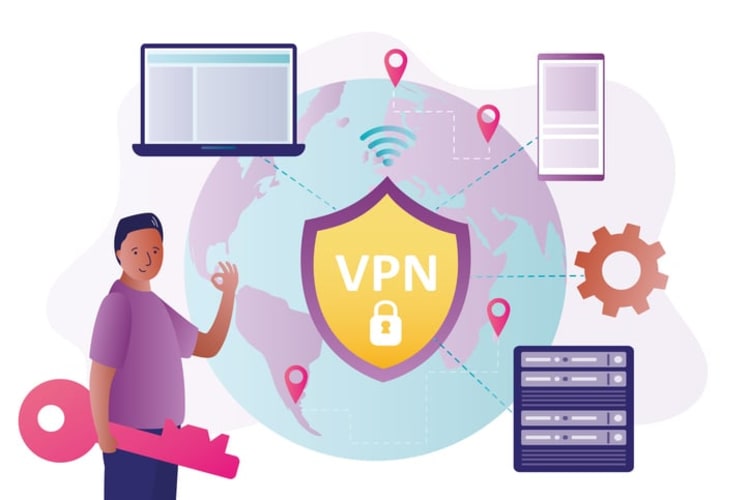Are you a manager struggling to delegate tasks effectively? Or perhaps you’re an employee who dreads being handed yet another task from your boss? Effective delegation is the key to unlocking your team’s full potential and optimizing productivity. In this blog post, we’ll explore the art of delegation, its importance in management, and strategies for mastering its core skills. We’ll also delve into common delegation challenges, tools for effective task management, and the impact of delegation on employee engagement and job satisfaction. Get ready to improve your management skills and transform your team’s performance!
Key takeaways
- Delegation is a key part of management that helps optimize productivity, achieve shared goals, and develop team member skills.
- Managers can master the art of delegation by developing essential skills such as clear communication, selecting competent individuals, establishing accountability and offering support & guidance.
- Delegation promotes trust & alignment with employee interests to improve job satisfaction & performance.
The essence of delegation in management

Delegation is an essential component of management that involves:
- Assigning tasks and responsibilities to team members
- Achieving common goals
- Improving productivity
- Developing skills
The process of delegation is vital as it helps optimize productivity by allotting delegated work to team members and aids in achieving shared goals.
But why is delegation so important in management, and how can managers delegate effectively to ensure desired outcomes? We will now delve further into understanding the core of delegation and why it holds importance in management.
The definition of delegation
Delegation involves distributing tasks and authority to team members. This process helps streamline efficiency and productivity, which are vital aspects of effective delegation. The principle of functional definition in delegation provides a clear delineation of the tasks and responsibilities being delegated, including the delegate authority.
Delimiting delegated tasks and responsibilities can diminish perplexity and obscurity, resulting in improved outcomes and augmented proficiency, ensuring that team members understand their roles in each delegated task and assigned task.
The significance of delegation in management

Effective delegation is essential for successful management, promoting teamwork, and enabling employees. By delegating tasks to the lowest possible organizational level, managers can improve workplace efficiency, provide opportunities for personal development, and help themselves delegate work effectively.
Correlating the level of responsibility with the level of authority ensures that you can assign certain responsibilities, including the right tasks, however, you cannot assign away the ultimate accountability. In essence, effective delegation is crucial for fostering teamwork, empowering employees, and achieving organizational goals.
Mastering the art of delegation: core skills for managers

For managers to delegate tasks effectively and ensure their successful execution, they must hone crucial delegation skills such as:
- Clear communication
- The ability to select competent individuals
- Establishing accountability
- Monitoring progress
- Offering support and guidance
In the following discussion, we’ll delve into these core skills in detail, equipping you with the necessary tools to excel in delegation and enhance your management abilities.
Clear communication
Articulate communication is essential for issuing instructions, defining expectations, and preserving open channels of communication. Successful delegation relies heavily on managers having strong communication skills. This includes understanding the concerns and needs of team members, providing clear instructions and expectations for tasks, and maintaining open channels of communication.
Regular check-ins and providing feedback during the course of the project can facilitate effective communication for delegation. By ensuring comprehensive support and being accessible to address queries, managers can guarantee the project’s accomplishment through continuous communication and monitoring, as well as the provision of resources and recognition.
Selecting competent individuals
Choosing competent individuals for assigned tasks guarantees that they are carried out effectively and precisely. To select suitable individuals for delegated tasks, emphasis should be placed on the desired outcome and the significance of the task. Managers can ensure employees have the appropriate training, resources, and authority to carry out their tasks by evaluating their capabilities.
In the end, the process of carefully selecting competent individuals for delegated tasks ensures they can complete tasks effectively, thereby boosting efficiency and accuracy in executing the tasks.
Establishing accountability
Establishing accountability is essential for preserving responsibility and ownership of delegated tasks. Exploring how success will affect:
- Financial rewards
- Future opportunities
- Informal recognition
- Other desirable consequences can foster motivation and commitment.
To ensure accountability, it is necessary to establish clear expectations, offer timely feedback, and recognize achievements. By fostering accountability in the delegation process, managers can ensure that tasks are completed accurately and efficiently, while also promoting a sense of ownership and responsibility among team members.
Overcoming common delegation challenges

Addressing common delegation challenges can assist managers in overcoming apprehensions and refining their delegation capabilities. Some of these challenges include the fear of losing control, the reluctance to delegate important tasks, and dealing with underperforming team members.
In the ensuing discussion, we’ll delve into these challenges in detail and suggest strategies to overcome them, thereby refining your delegation skills and uplifting your team’s performance.
Fear of losing control
The apprehension related to delegating tasks involves entrusting team members and providing assistance when necessary. Managers can assuage their apprehensions by entrusting team members and offering support and counsel.
Once managers conquer the fear of losing control, they can foster trust with their team members, creating an environment where employees feel confident in taking ownership of their delegated tasks and delivering their best performance.
Reluctance to delegate important tasks
Delegating important tasks to competent team members can enable managers to free up time for strategic planning. When delegating important tasks, one may experience fear of losing control, the need to manage underperforming team members, and difficulty in monitoring progress without micromanaging.
To address these difficulties, strategies such as:
- Clear communication
- Selection of competent individuals
- Establishment of accountability
- Scheduled check-ins
- Provision of support and guidance
- Identification of opportunities for growth
- Offering of training and resources
- Self-assessment
By overcoming the reluctance to delegate important tasks, managers can ensure the success of their team and focus on more strategic aspects of their role.
Dealing with underperforming team members
Addressing underperformance in delegated tasks involves:
- Providing feedback and support to help team members improve their performance
- Observing the employee’s performance to gain insight into the underperformance
- Posing inquiries to pinpoint the pertinent issues
- Reviewing any pertinent data or documents
Managers can utilize these strategies to address underperformance and help their team members improve.
By providing constructive feedback and clearly articulating expectations, managers can ensure effective communication and help underperforming team members improve their performance. Offering support and resources such as additional training, mentorship, or access to relevant materials can also empower employees to excel in their delegated tasks and develop new skills.
Utilizing delegation tools for effective task management

Delegation tools are useful for managers in order to effectively manage tasks and deadlines without resorting to micromanagement. In the following discussion, we’ll examine the most effective delegation tools, such as project management platforms and communication channels, and discuss their role in helping managers streamline delegation and task tracking, ultimately leading to enhanced performance and productivity of the team.
Project management platforms
Project management platforms like Asana, Basecamp, and Trello can streamline delegation and task tracking by providing an organized platform for managers to assign tasks, track progress, and monitor deadlines. These platforms offer features such as task assignment, deadline setting, progress tracking, and communication, which are necessary for efficient delegation and task management.
By utilizing project management platforms for delegation, managers can effectively manage tasks and deadlines, ensuring that delegated tasks are completed accurately and efficiently.
Communication channels
Communication channels such as email, Slack, Microsoft Teams, or Kumospace can facilitate open communication and progress updates, allowing managers to monitor task progress and provide support and guidance when needed.
Effective communication channels are essential for maintaining open lines of communication between managers and team members, ensuring that tasks are delegated effectively and completed on time. By leveraging communication channels in delegation, managers can:
- Keep their team informed and engaged
- Provide clear instructions and expectations
- Address any questions or concerns promptly
- Provide feedback and guidance throughout the process
This ultimately improves the overall effectiveness of the delegation process.
Explore virtual office software
As the business environment modernizes to incorporate remote and hybrid work models, the task of effectively delegation needs to evolve. Many manager are therefore turning to virtual workspace software, that replicated the benefits of a physical office environment.
This type of software is blend video conferencing and team messaging with time and task management to enhance communication, collaboration and delegation. It provides managers with an unique tool for better delegation without the negative impact of traditional time and task management tools. Managers also get the benefit of being able to have ad hoc meetings as they might by passing by an employee’s desk in a physical office.
Monitoring progress without micromanaging

Monitoring progress without micromanaging is of great importance as it enables managers to:
- Confirm that tasks are being completed in a timely manner
- Ensure tasks are being completed in accordance with the required standards
- Avoid excessive supervision of their team
In the upcoming segment, we’ll examine various tools and strategies that allow for progress tracking without micromanaging, including scheduled check-ins and providing support and guidance, all of which contribute to better management of the team’s productivity and performance.
Scheduled check-ins
Regular check-ins enable managers to:
- Remain apprised of task progress while avoiding excessive interference
- Offer feedback and direction
- Guarantee tasks are being accomplished in a timely manner and up to the necessary standard
Check-ins can be tailored to the task and individual, with complex tasks requiring more frequent check-ins and simpler tasks necessitating less frequent check-ins. By incorporating scheduled check-ins into the delegation process, managers can effectively monitor progress without micromanaging, ensuring that tasks are completed accurately and efficiently.
Providing support and guidance
Offering support and guidance to team members is essential for ensuring tasks are completed effectively and efficiently. Support and guidance can be provided by offering clear instructions, providing resources and training, and offering feedback and encouragement.
By providing support and guidance in the delegation process, managers can help team members complete delegated tasks effectively and efficiently, ultimately improving team performance and productivity.
Encouraging skill development through delegation

Delegation can promote skill development and growth opportunities for team members by offering them the chance to acquire new skills and assume additional responsibilities. In the subsequent discussion, we’ll examine how delegation can foster skill development, including strategies for recognizing growth opportunities and providing training and resources.
Ultimately, this can help each team member to expand their skill sets and take on new challenges.
Identifying opportunities for growth
Recognizing potential for growth through delegation is critical as it grants team members the chance to take on new roles and acquire new abilities. Managers can identify opportunities for growth in delegation by evaluating the capabilities of their team members, comprehending the objectives of the organization, and determining which tasks can be delegated.
By identifying and capitalizing on opportunities for growth in delegation, managers can ensure their team members acquire new skills and take on new challenges, ultimately enhancing team performance and productivity.
Offering training and resources
Offering training and resources can enable employees to effectively accomplish their delegated tasks and acquire new skills. Some examples of training and resources include:
- Online courses
- Webinars
- Seminars
- Workshops
- Other instruction formats
By providing training and resources to team members, managers can empower their employees to excel in their delegated tasks and develop new skills, ultimately contributing to the success of the team and the organization.
Evaluating and improving your delegation skills

Continuously evaluating and improving delegation skills is essential for successful management and team achievement. In the following segment, we’ll delve into the importance of assessing and honing delegation skills, including strategies for self-evaluation and obtaining feedback from team members.
Ultimately, this will help managers to become more effective leaders and ensure the success of their team.
Self-assessment
Self-assessment tools are resources that enable managers to:
- Evaluate their delegation capabilities
- Pinpoint areas for growth
- Recognize areas for progress in their delegation abilities
- Track development
- Guarantee that tasks are delegated effectively.
By utilizing self-assessment tools, managers can evaluate their progress in specific areas, identify areas for improvement, and ensure that they are delegating tasks effectively and efficiently.
Seeking feedback
Obtaining feedback from team members can offer valuable insight into the effectiveness of delegation and areas for development. Managers can solicit feedback from team members by inquiring, administering surveys, or organizing regular meetings.
By seeking feedback and implementing necessary changes, managers can improve their delegation skills and enhance their team’s performance and productivity.
The impact of delegation on employee engagement and job satisfaction

Effective delegation can positively impact employee engagement and job satisfaction by fostering trust and aligning tasks with interests.
In the ensuing discussion, we’ll examine how employee empowerment through delegation can foster trust and enhance job satisfaction. Additionally, we’ll discuss the advantages of aligning delegated tasks with employee interests, which ultimately leads to a more engaged and content workforce.
Empowerment and trust
Empowering employees through delegation can build trust and improve overall job satisfaction. Delegation enables employees to assume ownership of their work and cultivate their abilities, while also providing managers with the chance to concentrate on more strategic tasks.
By fostering trust and empowerment through delegation, managers can create an environment where employees feel valued and motivated to perform at their best.
Aligning tasks with employee interests
Aligning delegated tasks with employee interests can increase motivation and engagement in the workplace. By assigning tasks that align with employees’ skills and preferences, managers can ensure that their team members are more invested in their work and ultimately more productive and satisfied in their roles.
This alignment not only benefits individual employees but also contributes to the overall success of the team and the organization.
Summary
In conclusion, effective delegation is a critical skill for managers in today’s fast-paced business environment. By mastering core delegation skills, overcoming common challenges, and utilizing delegation tools, managers can ensure that tasks are delegated efficiently and team members are empowered to excel in their roles. Furthermore, by encouraging skill development, evaluating and improving delegation skills, and fostering employee engagement and job satisfaction, managers can create a more productive, motivated, and satisfied workforce. So go ahead, embrace the art of delegation, and unlock your team’s full potential!
Frequently asked questions
Delegation in the workplace is the transfer of authority from a manager to another, such as their direct reports or co-workers, in order to assign responsibility and free up their time for higher-level strategic planning. This allows managers to focus on more important tasks, while delegating the more mundane tasks to their subordinates. It also helps to develop the skills of the subordinates, as they are given the opportunity to take on more responsibility. Delegation also helps to create a sense of ownership and accountability among the team, as
Delegation in the workplace can take different forms, such as providing a subordinate with clear instructions or assigning research and feedback gathering tasks. For example, a sales manager may delegate the task of preparing sales reports to a junior team member while setting guidelines and deadlines but also allowing them creative freedom.
Delegation involves the shifting of authority and responsibility from a leader or manager to another, typically for specific tasks or decisions. This is the most commonly accepted definition of the term, though it can be interpreted more narrowly.
Delegation skills involve assigning tasks to individuals according to their skills and abilities. For example, a manager may delegate time-sensitive tasks to team members who can complete an assignment in three hours and assign tasks with a flexible deadline to others, or a senior software engineer might ask a junior programmer to fix a software bug if their workload is too demanding. Delegation can also involve giving directions to a subordinate and telling them exactly what to do or assigning someone to compile research, gather feedback, and report back to make informed decisions.
Focus on clear communication, assigning tasks to competent individuals, holding them accountable, monitoring progress, and offering guidance to ensure delegation success.





